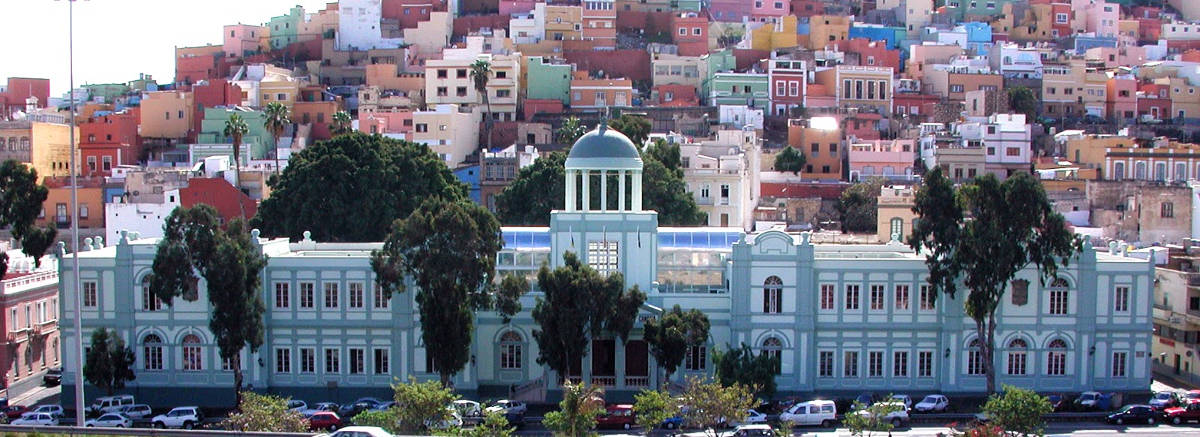 The University of Las Palmas de Gran Canaria (ULPGC) as such was created in the 1989-1990 academic year, as a result of a major movement in society in Gran Canaria, which culminated when the Canary Islands Parliament passed the University Reorganisation Law on April 26th, 1989. This law brought together the Canary Islands Polytechnic University (which was first set up in 1979 as the Polytechnic University of Las Palmas) with other university centres on Gran Canaria, the origins of some of which date back to the 19th century. The ULPGC is, thus, a modern institution with a long academic track record, committed to quality, efficiency and modernity.
The University of Las Palmas de Gran Canaria (ULPGC) as such was created in the 1989-1990 academic year, as a result of a major movement in society in Gran Canaria, which culminated when the Canary Islands Parliament passed the University Reorganisation Law on April 26th, 1989. This law brought together the Canary Islands Polytechnic University (which was first set up in 1979 as the Polytechnic University of Las Palmas) with other university centres on Gran Canaria, the origins of some of which date back to the 19th century. The ULPGC is, thus, a modern institution with a long academic track record, committed to quality, efficiency and modernity.
The organisation of the University is based on a number of different units. The single-member bodies include those of the Rector, who is aided in his work by the Board of Directors. Collegiate organs include the Governing Council, the Social Council and the Senate or Claustro, as well as the University Community Ombudsman.
The University of Las Palmas de Gran Canaria has vested a number of outstanding personalities as Doctors Honoris Causa, including a number of Nobel prize-winners, such as José Saramago and Rigoberta Menchú, the astronaut Miguel López Alegría, the tenor Alfredo Kraus and the linguist Eugenio Coseriu.

Research activities reflect the multi-disciplinary nature of our 36 Departments: 12 in engineering and architecture, 11 in science and health sciences, 6 in social and legal sciences and 7 in art and humanities. ULPGC research includes cutting-edge projects in such wide-ranging subjects as oceanography, marine science, aquaculture, computer robotics, nutrition, cancer, electronics, ITC, renewable energies, transport economy, business organization, town planning, translation and the history of the Canary Islands, among others.